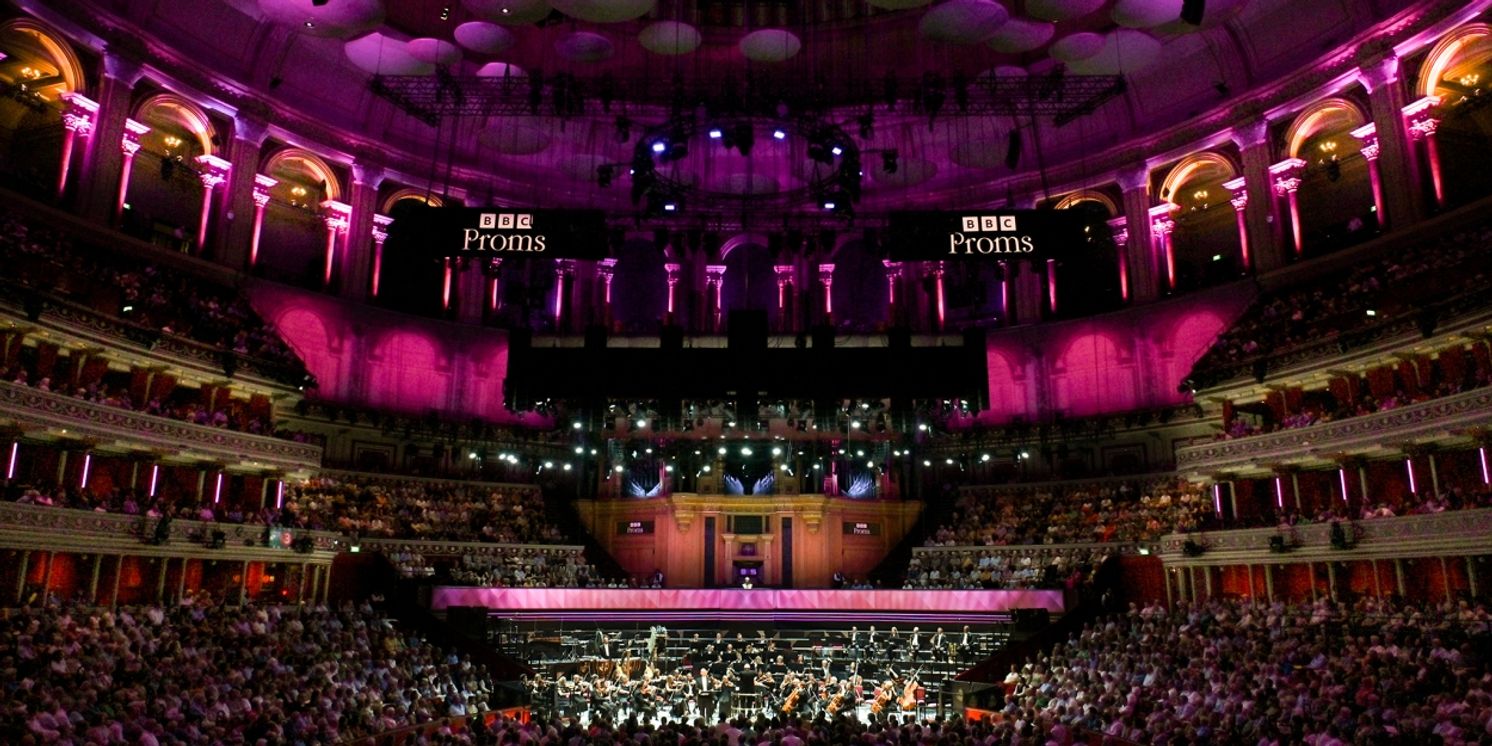Review: BBC PROMS: PROM 33 – TITANS OF BRITISH MUSIC, Royal Albert Hall
Martyn Brabbins conducts the BBC Symphony Orchestra, and is joined by renowned baritone Christopher Maltman

![]() There has always been much conjecture over what it really means to be British – most recently, a group of self-proclaimed “patriots” got together and trashed libraries, independent businesses, and community hubs across the country in the name of supposedly getting their country back. This, of course, isn't patriotism at all. Something that is often held up as a paragon of Britishness, however, is the Proms season; outside of the famous Last Night, this year's Prom 33 may end up being the most quintessentially British of the lot.
There has always been much conjecture over what it really means to be British – most recently, a group of self-proclaimed “patriots” got together and trashed libraries, independent businesses, and community hubs across the country in the name of supposedly getting their country back. This, of course, isn't patriotism at all. Something that is often held up as a paragon of Britishness, however, is the Proms season; outside of the famous Last Night, this year's Prom 33 may end up being the most quintessentially British of the lot.
With the BBC Symphony Orchestra performing pieces by Elgar, Holst, and Vaughan Williams (as well as a set of songs by his teacher, Charles Villiers Stanford), the packed audience was given a taste of the early twentieth century, as the country started to go through a series of changes that would bring it into the modern world.
The evening began with the overture to Cockaigne (In London Town) by Elgar; starting with an overture made it feel like it was more than simply a concert, as it set the tone for the entire evening. The piece is a relatively light and cheery affair, demonstrating recognisable facets of the capital city in musical form.
Gustav Holst’s Hammersmith followed; written around 1930, the composition reflects the gradual development of Hammersmith into the traffic- and shop-heavy district that we recognise today - it begins with a prelude inspiring by the slow and steady flow of the Thames through the area, before launching into a scherzo based on the bustling metropolis. Holst lived and taught in Hammersmith, so it’s clearly based on years of observation. Even though it’s obviously inspired by one part of London, it also feels like a microcosm of Britain as a whole at this moment in time: urban sprawl versus countryside calm, and the inevitable change to come.
.jpg?format=auto&width=1400)
Stanford is a slightly more leftfield inclusion, given that he was born and raised in Ireland, however he made significant contributions both to the Cambridge University Musical Society and also the field of Anglican church music - this year also marks the centenary of his death. Aside from “To the Soul”, the Songs of Faith and “The Fairy Lough” have never previously been performed at the Proms; it was, however, a reunion for baritone Christopher Maltman and conductor Marytn Brabbins, as the pair previously recorded these songs 25 years ago.
.jpg?format=auto&width=1400)
This may have been Maltman’s first time singing them since then, but his smooth and confident performance would make you think they were regular inclusions in his concert career.
After an interval, the evening concluded with Vaughan Williams’ Symphony No. 2 (A London Symphony). Even though Vaughan Williams lived in London for his entire life, he is mostly thought of as a pastoral composer, but this piece bucks that trend in great style. Over the course of four movements, the listener is taken on a whistlestop tour around the London that he knew and loved - and if you got lost amidst the hubbub, the Westminster Chimes (played beautifully on the harp) are there to point you in the right direction.
It’s quite a crowded piece, but odd little motifs stick out every now and then - a highlight was the lavender seller, represented by solo viola, trying to make their voice stand out.
Ultimately, the evening turned out to be more of a celebration of London - or, at a push, England - than of the entirety of Britain. Even though Wales and Scotland are more than used to this by now, perhaps it could have been named slightly more aptly - but on the other hand, what could be more British than this?
The BBC Proms run at the Royal Albert Hall until 14 September
Photo credit: BBC/Chris Christodolou
Reader Reviews
Videos


